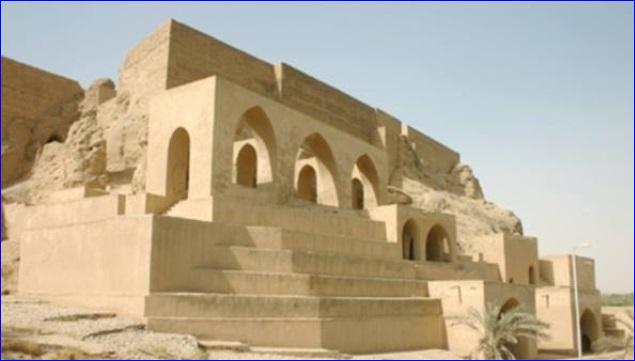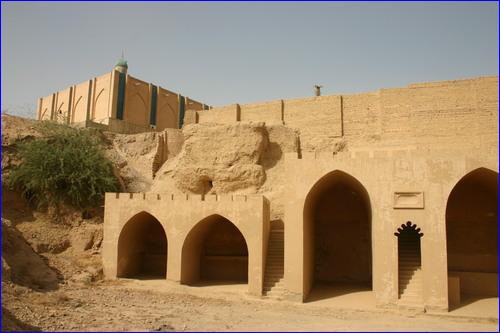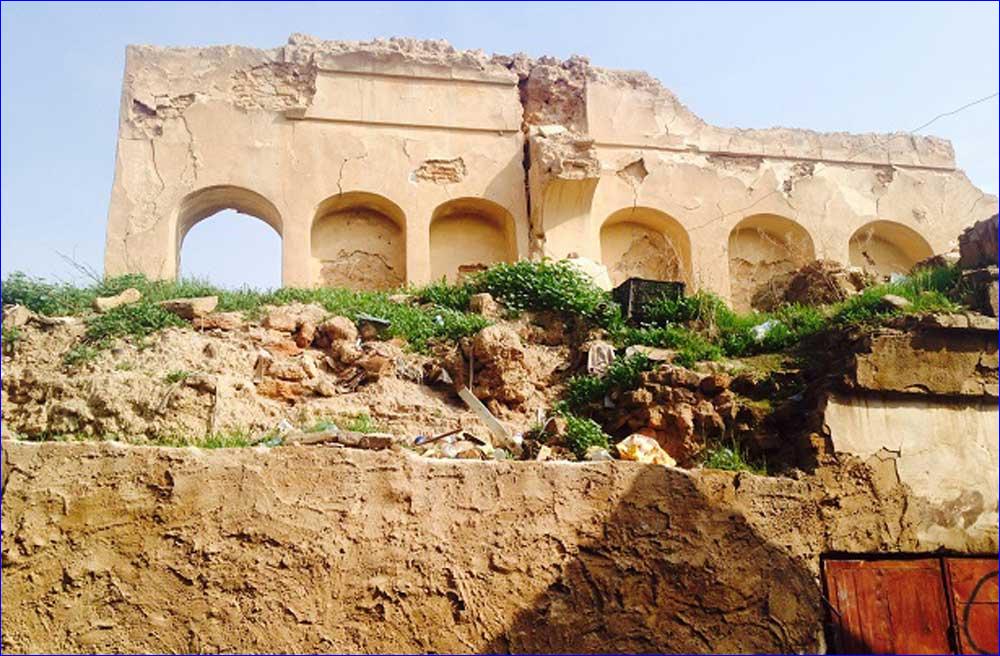Extremist Destroy 7th Century Church & Mosque in Tikrit – Iraq

The Assyrian Green Church in Tikrit, Iraq, built in the 7th century, which was destroyed by ISIS.

The Assyrian Green Church in Tikrit, Iraq.

The Assyrian Green Church in Tirkit, Iraq.
26/9/14
(AINA) — According to a report by BBC Arabic, Islamists in Tikrit have destroyed The Assyrian Green Church, built in 700 A.D., and Forty Shrine, the oldest Islamic religious shrine in Iraq.
Islamists, most likely ISIS, planted explosives around the Assyrian Green Church, which is located inside the presidential palaces compound in the center of the city, and detonated them, completely destroying the ancient church, which belonged to the Assyrian Church of the East.
Similarly, Islamists planted explosives around the Forty Shrine mosque and surrounding tombs, located in the center of the city in Salahuddin Province, and detonated them, completely destroying the mosque. It is believed the Forty Shrine housed the remains of 40 of Muhammad’s comrades, who took part in the Islamic conquest of the region during the reign of the second Caliph Omar ibn al-Khattab in 638 A.D.
ISIS has destroyed churches, religious shrines and mosques in the provinces of Kirkuk and Nineveh, including the tombs of the prophets Jonah, George, Daniel as well as a number of ancient churches in the provinces of Salahuddin and Nineveh. In Mosul ISIS has destroyed or occupied all 45 Christian religious institutions (AINA 2014-07-29).
The Green Church was considered the most famous church of Tikrit and the most beautiful. It was built by the Metropolitan of Tikrit, His Holinesss Dinkha II, and was called the church of Saint Ahoadamah in remembrance of the Patriarch who was killed by the Persian King Khosrow I.
Buried in the Church were the founder Mar Dinkha II, and his successors Daniel, Thomas, Basilious III, and John II.
In 1089 the church was ordered destroyed by the Muslim governor and it was looted and damaged, but was later restored and returned to Assyrians.
In 1258 Assyrians took refuge in the church during the Mongol invasion of Tikrit. They were killed in the Church and only a few escaped to tell their story, that Timurlane built two minarets and three domes from the heads of the dead Christians.
The Church was restored on the orders of Iraqi President Saddam Hussein in the nineties and during the restoration several coffins were found of Christian clerics. One of these coffins contained rusty ferrous material, a silver scepter and seals decorated in the shape of a cross, with Assyrian inscriptions saying “I am Anaseous, Bishop of Tikrit.”
Tikrit is an ancient Assyrian city, dating back to the Assyrian Empire (1000 B.C.). It remained predominantly Assyrian and Christian in the early centuries of Islamic rule. But restrictions by Muslims forced some Assyrians to migrate northward. The city remained predominantly Assyrian until it was sacked and nearly destroyed by Timurlane. The last of the Assyrians left by 1700 A.D.
